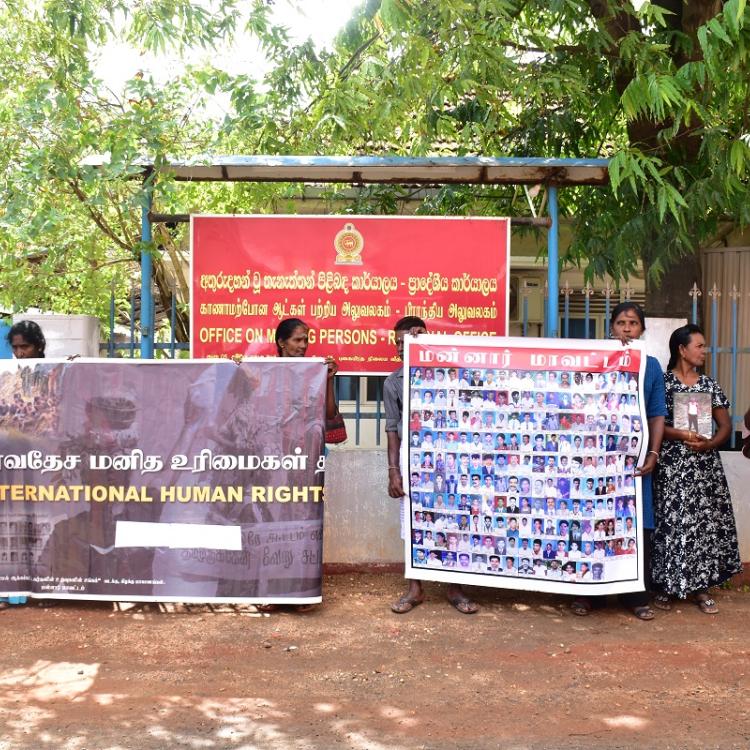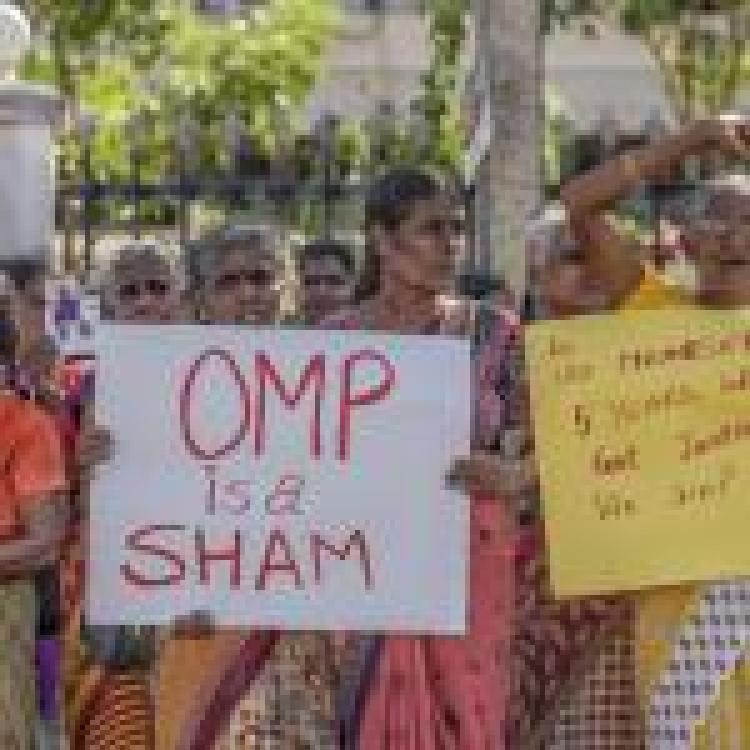.jpg) Although it has been 15 years since the end of the armed conflict in Sri Lanka where particularly towards the end, tens of thousands of Tamils were reported enforced disappeared, the government-run Office of Missing Persons has once again resumed its fact-finding mission in Jaffna.
Although it has been 15 years since the end of the armed conflict in Sri Lanka where particularly towards the end, tens of thousands of Tamils were reported enforced disappeared, the government-run Office of Missing Persons has once again resumed its fact-finding mission in Jaffna.
Families and relatives of the disappeared were asked to appear before the officers of the OMP at the Divisional Secretariat to provide information, that has already been collected, collated, and documented. Tamils in the past have rejected attempts by the OMP to silence them by offering money (amounting to USD 600) and death certificates to confirm the death of their loved ones. Tamils have time and again sought an international investigation into allegations of war crimes, which the Sri Lankan government continues to evade.
Relatives from Nallur, Chavakachcheri, Karanaigar, Sandilippai, Sangani, and other areas within the jurisdiction of the Jaffna Divisional Secretariat were summoned to provide information. This latest round of data collection comes after years of delays by the OMP to take any proactive measures. It is unclear how much more another round of investigations would contribute to providing justice to the families of the disappeared. The government under Ranil Wickremesinghe has in the past appointed several committees and task forces. Yet 15 years since the armed conflict families still languish for answers to what happened to their loved ones.
The OMP has been routinely criticised by international human rights experts and Tamil family members of the disappeared. In 2022, the UN High Commissioner highlighted that the OMP "has not been able to trace a single disappeared person or clarify the fate of the disappeared in meaningful ways". Eelam Tamils in the North-East and the diaspora have rejected the OMP citing that it has failed to find their loved ones, with many labelling the institution a whitewash.
.jpg)
.jpg)
.jpg)
.jpg)



